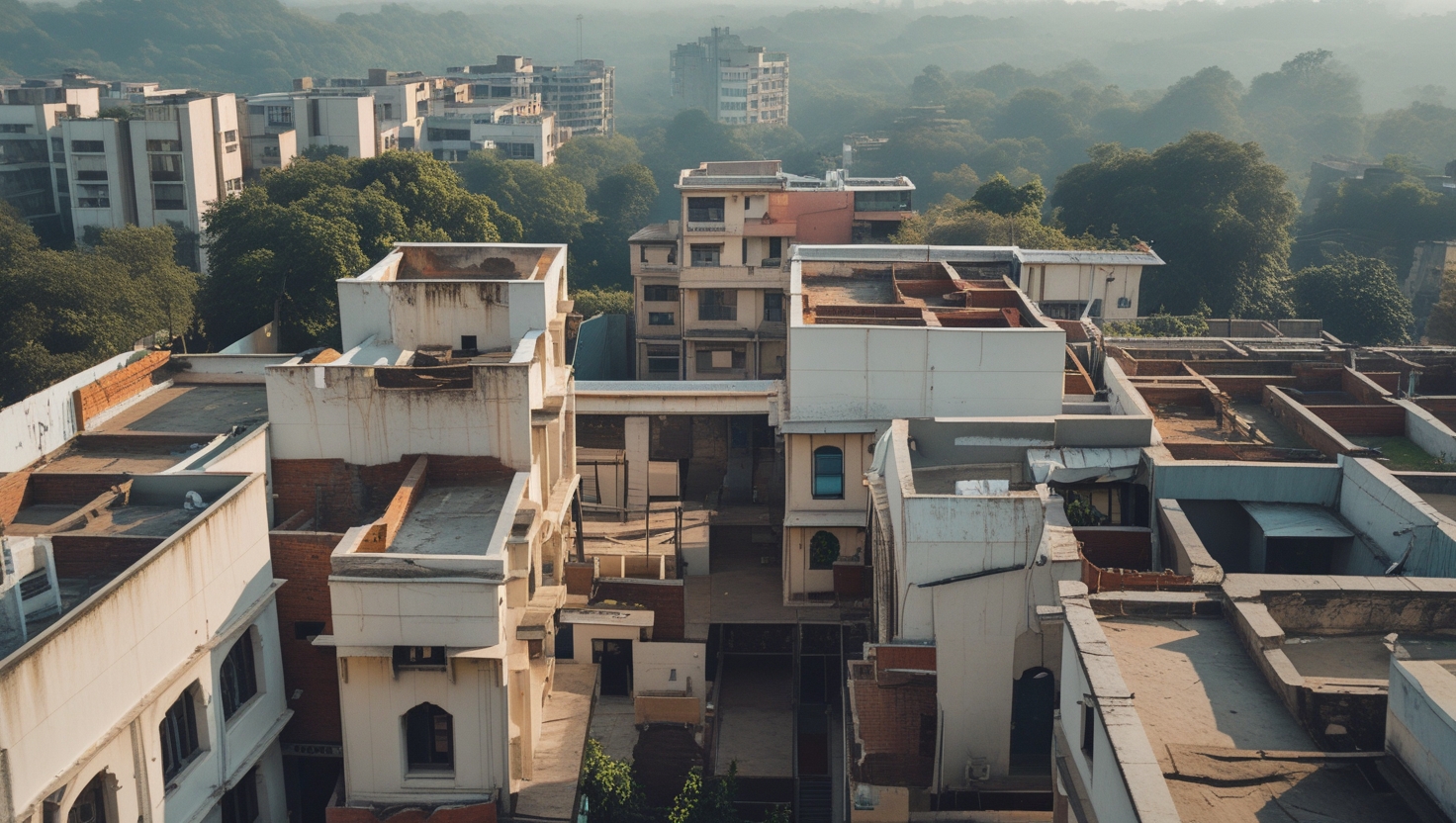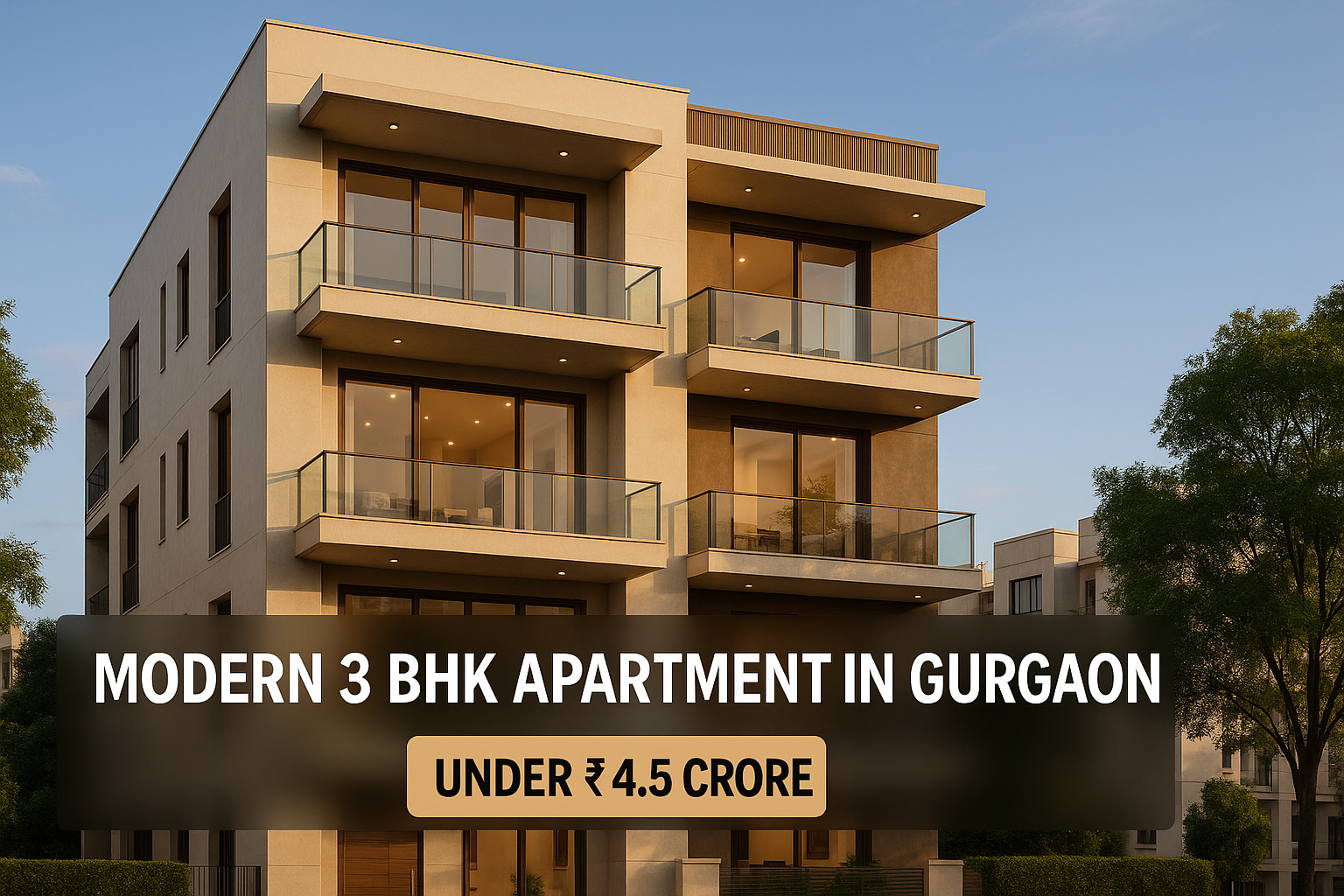Delhi LDA Freezes Leasehold to Freehold Conversions: What Property Owners Need to Know
Thinking about converting your leasehold property in Delhi to freehold? Well, you might need to put those plans on hold. Recently, the Land and Development Office (L&DO) hit the brakes on all leasehold-to-freehold property conversions in Delhi. This unexpected halt has left many property owners worried and confused.
If this affects you—or you’re just curious about what this all means—we’re breaking it down in simple terms. Let’s explore why the conversions have been paused, what it means for homeowners, and what you can expect moving forward.
What’s the Difference Between Leasehold and Freehold?
Before we dive into the news, let’s clear up a basic question you may have: What’s the deal with leasehold and freehold properties?
- Leasehold Property: You own the building, but not the land it’s on. That belongs to the government or another entity. You lease it for a set number of years—often 99 years.
- Freehold Property: You own both the building and the land. It gives you full rights to it with no time limit.
Converting from a leasehold to a freehold gives homeowners more independence and increased property value. It simplifies legal ownership and makes it easier to sell, renovate, or mortgage your home.
So, What’s Happening in Delhi?
Until recently, the L&DO—which handles property management under the Ministry of Housing & Urban Affairs—was allowing leasehold property owners to convert their titles to freehold by paying a set fee and following the required legal steps.
But as of now, the L&DO has suspended all these conversions.
The reason? Officials say they’re reviewing irregularities in the conversion process. Essentially, they want to ensure everything is above board before resuming the service.
What Triggered the Pause?
According to reports, the L&DO is concerned about possible misuse or inconsistencies in the way conversions were being handled. They want to re-evaluate the process and tighten checks to prevent illegal beneficiaries from slipping through the cracks.
In simple words: They’re hitting pause to clean house.
Who’s Affected by the Move?
If you’re a property owner in areas like Karol Bagh, Civil Lines, or Connaught Place, and your property still falls under leasehold status—this pause likely affects you.
Not only individuals but also developers, housing societies, and brokers are impacted. Converting to freehold improves both legal clarity and resale value, so this pause is sending ripples across Delhi’s already heated property market.
What Does This Mean for Property Owners?
If you were planning to start your conversion soon—or you’re mid-process—your application will be on hold for now. The L&DO hasn’t announced a deadline for when the conversions will begin again, which makes the situation a bit uncertain.
Here’s What You Can Do in the Meantime:
- Stay informed: Keep an eye on official updates from the L&DO or the Ministry of Housing and Urban Affairs.
- Gather your documents: Ensure all your property papers are in order and ready for submission once conversions resume.
- Consult a legal expert: If you’re unsure about your lease terms or rights, it’s worth speaking to a property lawyer.
Why Converting to Freehold Matters
If you’re still wondering if this affects you, here’s why converting to freehold property is a big deal, especially in cities like Delhi:
- Unrestricted ownership: You can sell, lease, or renovate without needing government permissions.
- Better resale potential: Freehold properties are more attractive to buyers and fetch higher prices.
- Easier bank loans: Banks are more likely to approve loans on freehold properties.
For many homeowners, it’s not just about legal documents—it’s about peace of mind and securing one’s legacy.
What Can We Expect Next?
At this point, officials haven’t provided a timeline on when leasehold-to-freehold conversions will resume. But insiders suggest the L&DO is working on developing stricter verification procedures and reviewing past applications for compliance.
Chances are, when services restart, property buyers and owners may have to follow a more thorough—possibly longer—process. That might include stricter documentation, clearer land records, or even new fees.
Reading Between the Lines: Is This the Start of a Bigger Policy Shift?
Some experts believe this could be a step toward ushering larger reforms in the land ownership system. After all, Delhi still has thousands of leasehold properties, many located in premium zones. Switching them to freehold could open new avenues for urban development—but only if managed transparently.
In fact, there was hope that the government would make the conversion process more accessible. Now, with the pause in place, homeowners find themselves in limbo.
Will we see digital portals for easier applications? Will the criteria change? Time will tell, but for now, the real estate sector in Delhi is holding its breath.
Final Thoughts: What Should Property Owners Do Now?
While this sudden halt is frustrating, especially if you’ve waited years to gain full ownership of your property, there’s no cause for panic.
Take this time to prepare so you’re ready when the process reopens. Keep an eye on official announcements, and avoid engaging in any “shortcut” offers or promises from unauthorized agents.
If you’re confused or overwhelmed, you’re not alone. Think of it like a traffic light—it’s just red for now, but it will eventually turn green again. Stay patient and proactive.
Have Questions or Thoughts?
Are you dealing with a leasehold property in Delhi? Planning to convert it once the freeze is lifted? Share your story or ask questions in the comments below—we’d love to hear from you!
And as always, keep following our blog for the latest real estate news, simplified.
Related Keywords to Keep in Mind:
- Leasehold to freehold conversion Delhi
- L&DO property conversion 2024
- Freehold vs leasehold in Delhi
- Delhi property ownership laws
- Real estate news Delhi 2024
Your home is more than just a building—it’s your future. Let’s make sure you own it outright.


